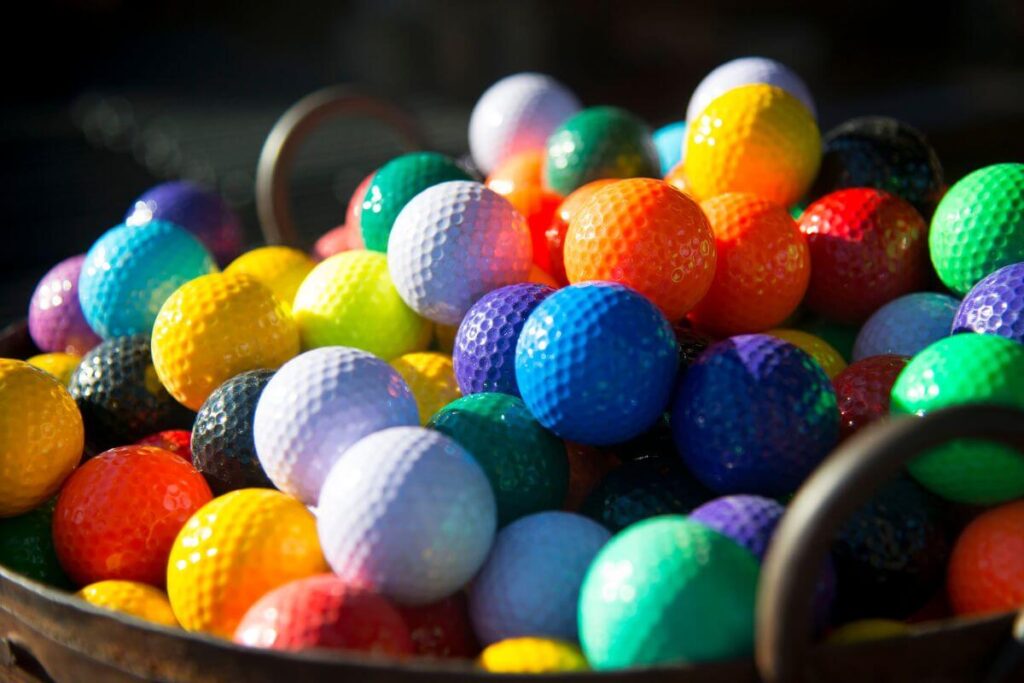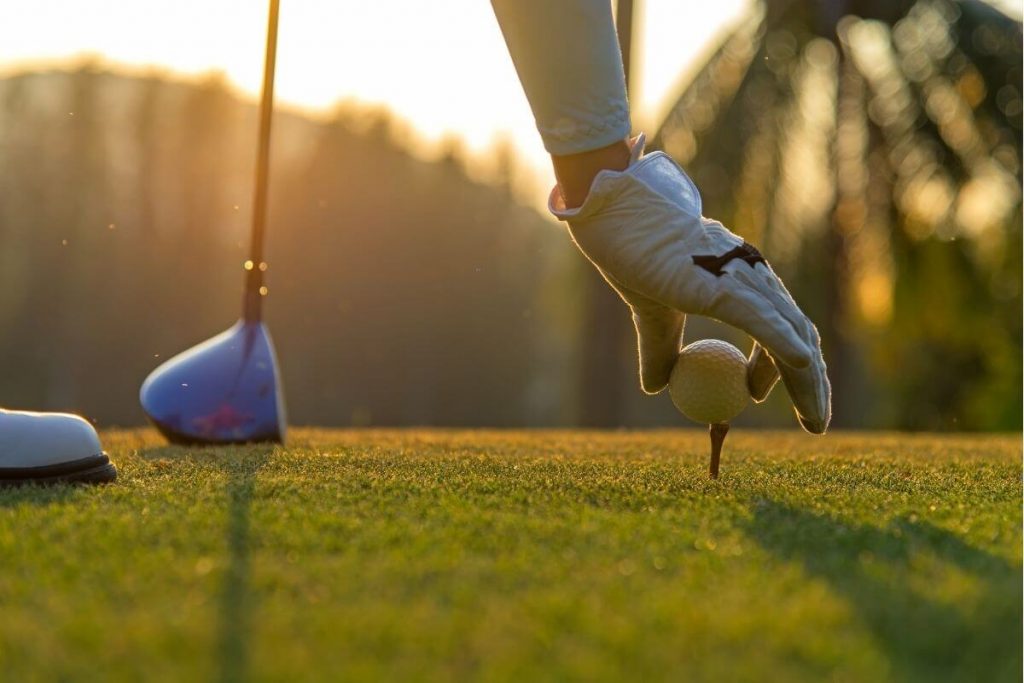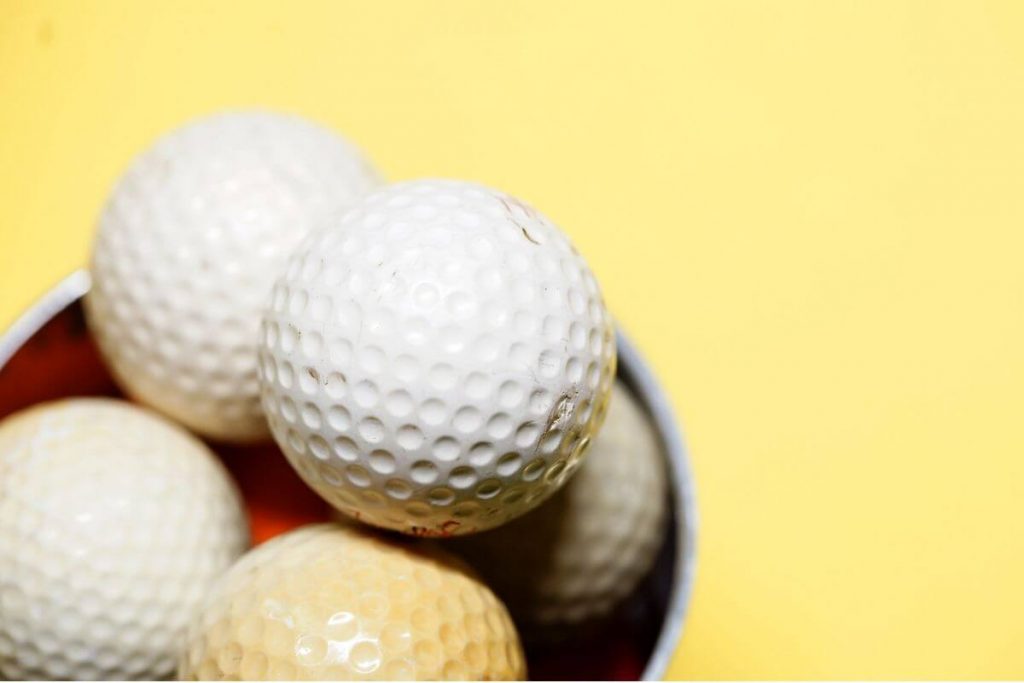Like other sports gear, there are different golf balls on the market, mainly hard and soft golf balls. As a beginner, you might wonder, which type can go the longest distance? Do soft golf balls go further?
Well, yes! Soft golf balls go further.
Believe it or not, soft golf balls can positively impact your progress if you’re a new player. This is because they don’t require high swing speed yet offer more control and distance. Hence, they’re the best choice for senior and junior golfers.
If you want to know more about soft golf balls, you’ve come to the right place. Stick around!
Table of Contents
Do Soft Golf Balls Go Further?
A soft golf ball has a low compression rating. So, it can compress more energy to go further from the tee. It has a mushy and delicate feel when it comes off the club head, which makes it great for when you’re still learning the feel around the green.
Depending on the compression level, a soft golf ball can be softer or extra soft. The softer the golf ball, the better because the compression can be attributed to its softness.
What Are the Benefits of Soft Golf Balls?
Whether you’re a pro or an average player, your golf ball preference is one of the significant factors that affect your overall performance. Though, for a beginner golfer, soft golf balls are typically recommended. Here’s why:
Beginner-friendly
Most golfers who are new to the game tend to be slow swingers. In this case, a soft golf ball will be handy because it covers more distance at a lower swing speed.
Soft golf balls take the pressure off of hitting with a fast club speed. This way, you can focus more on establishing solid contact with the ball. And then, after you achieve consistency, you can build up your swing speed until you reach the level you’re aiming at.
Soft Feel
A soft feel is one of the significant benefits of a soft golf ball because your touch and feel can be an essential aspect to how well you hit the shot. Using a golf ball with a comfortable feel can help you be in control.
Yet, even soft golf balls will feel a little different depending on the brand, so it’s best that you try out different soft golf balls until you find the one that offers the best balance of distance, comfort, and spin.
Longer Distance
Distance is a significant factor in playing golf. For an average player, hitting the ball at a competitive distance can be challenging. However, a soft golf ball can help!
Soft golf balls can easily compress once they make contact with the club, allowing them to travel further from the tee. As a result, they cover more distance.
Increased Spin Rate
Aside from the longer distance, soft golf balls generate lots of spin in short shots. As a result, you can hit the ball higher from the tee.
Furthermore, having more spin rate means that the ball can quickly stop when it lands on the green.
What’s the Difference Between Hard Golf Balls and Soft Golf Balls?
It’s essential to choose a golf ball that best suits your swing speed and technique. Eventually, your choices come down to a soft golf ball and a hard golf ball. But before you make a choice, below are the differences between hard golf balls and soft golf balls:
The Feel
The first thing that you’ll notice is the feel of the ball and the sound it makes. A soft golf ball will make a thud sound because of its sponge-like feeling, compared to a firmer golf ball that will make a click sound.
If you’re a player with an above-average swing speed, a soft golf ball will feel like hitting a slush. But, if you’re a slow swinger, the ball will feel like a rock when you strike it off the tee.
Compression Rate
Both hard and soft golf balls have different constructions. However, the difference also comes down to their compression. Since a hard golf ball has higher compression, it requires more club speed. Unlike soft golf balls, hard ones are mainly for pro golfers.
Skilled players who swing above average or a little over 90 MPH usually don’t need a golf ball with a low compression rate because they don’t need the extra distance.
Spin Rate
Another difference is how much both golf balls can spin. A golf ball’s spin rate is associated with its compression. The higher the compression, the less the spin it takes. So, a soft golf ball can spin more compared to a firm one.
However, the extra spin might not be ideal for some players. Depending on the speed of the swing, the ball can have too much spin when hit harder, causing it to have too much side-to-side spin and roll off course.
Price Range
Along with its features, a golf ball has a variety of brands and prices. That being said, hard golf balls are typically cheaper than soft golf balls.
What’s the Best Soft Golf Ball on the Market?
There are many brands of soft golf balls that you can buy at your local sports shop and online. Here are three of the best soft golf balls that you can buy if they’re within your budget.
Conclusion
Although the main reason to choose the soft golf ball is the lack of swing speed, it’s also important to know that it’s not only for beginners, as it can suit players with different levels of experience.
A golf ball is a personal preference, so whether you use a hard golf ball or a soft ball, make sure that you choose according to your style of play.
There you have it! The next time you wonder to yourself, “Do soft golf balls go further?” You’ll know for sure! And with that, you can decide which golf ball is the better choice.



